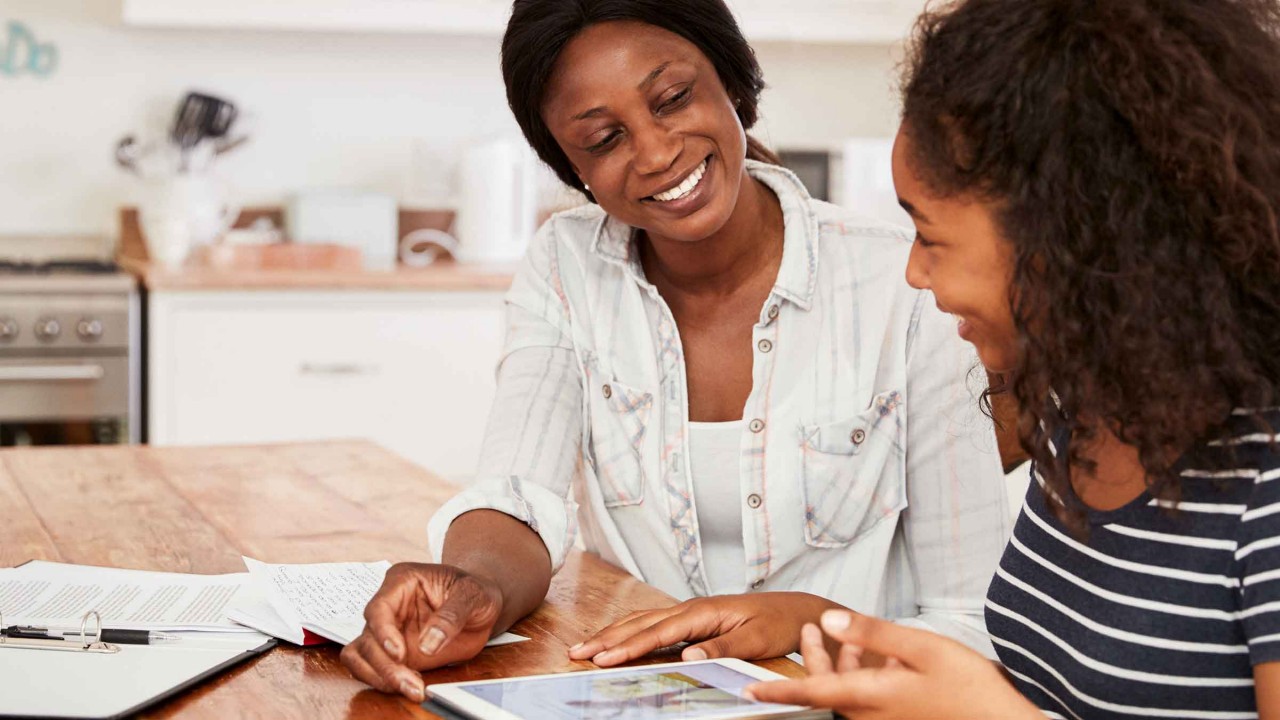5 ways to help promote a positive body image for your child

As a parent, you want your child to love themselves as much as you love them. But self-esteem can often be a struggle for kids as their bodies begin to change.
It can be hard to shield a child from the messages of what society deems as “ideal” beauty. Kids are able to constantly compare their looks to peers and influencers on social media, and to ads of air-brushed celebrities and photoshopped super models. This may negatively influence your child’s opinions of themselves if they don’t fit that unattainable mold.
These opinions can start forming at a young age. In fact, a Journal of Pediatrics study found 50% of girls between 9 and 14 wanted a thinner shape. However, girls aren’t the only ones who struggle with body image, more than 35% of males wanted to be thinner and 21% wanted to be larger.
There are things parents can do to help promote body positivity for children.
Consider these five tips
1. Start with yourself
Your children are paying attention to what you think, say and do. This includes how you view your own body. If you use negative words to describe yourself or are constantly trying different diets, your kids may pick up on these messages. Be positive about your own body first and your child may be more likely to follow your lead.
2. Support healthy nutrition
When it comes to weight, avoid obsessively counting calories or frequently checking the numbers on the scale. Help your children create a healthier relationship with nutritious food by encouraging them to think of it as a source of energy and vitamins. Teach them to focus on how these healthier choices make their bodies feel and the benefits they notice.
3. Encourage physical activity
Feeling fit, strong and able may help your child have positive feelings about their body and increased self-esteem. This is why regular physical activity is important. The Physical Activity Guidelines recommend children get at least 60 minutes of moderate-to-vigorous physical activity daily. Whether it’s a team sport or an individual activity like biking, encourage them to find activities they love, while keeping them active. This will help focus your conversations on all their bodies can do versus what they look like. Continue these as your child changes and grows.
4. Debunk the “perfect body”
Children consume a lot of media on a daily basis, but many times what they see on TV, social media or magazines is not real. This may create unrealistic beauty standards for their bodies. There’s been a recent surge of body-positive content on social media that is challenging societal ideals, and viewing this content showed to improve women’s body satisfaction and appreciation. Help your child filter who they follow on social media, to keep their platform a positive place to scroll through.
School is another place where your child may be made to feel different because of their body or worse, they could be the subject of bullying. If your child is struggling with bullying related to their body at school, the American Academy of Pediatrics offers tips to help you talk about the issues and effectively combat it.
5. Recognize your child’s non-physical attributes
Your child probably has many great qualities outside of their appearance. Is your child kind, funny or smart? Non-physical affirmations may help remind your child that there is more to them than their appearance. Remind them of the great things they are doing and the wonderful person they are becoming.
It’s normal for children to worry and compare their bodies to others. They are going through a lot of changes and it takes time to feel comfortable in their skin. But remember that you play an important role in their body image, by the example you set through your words and actions. Be their positive body influence.

